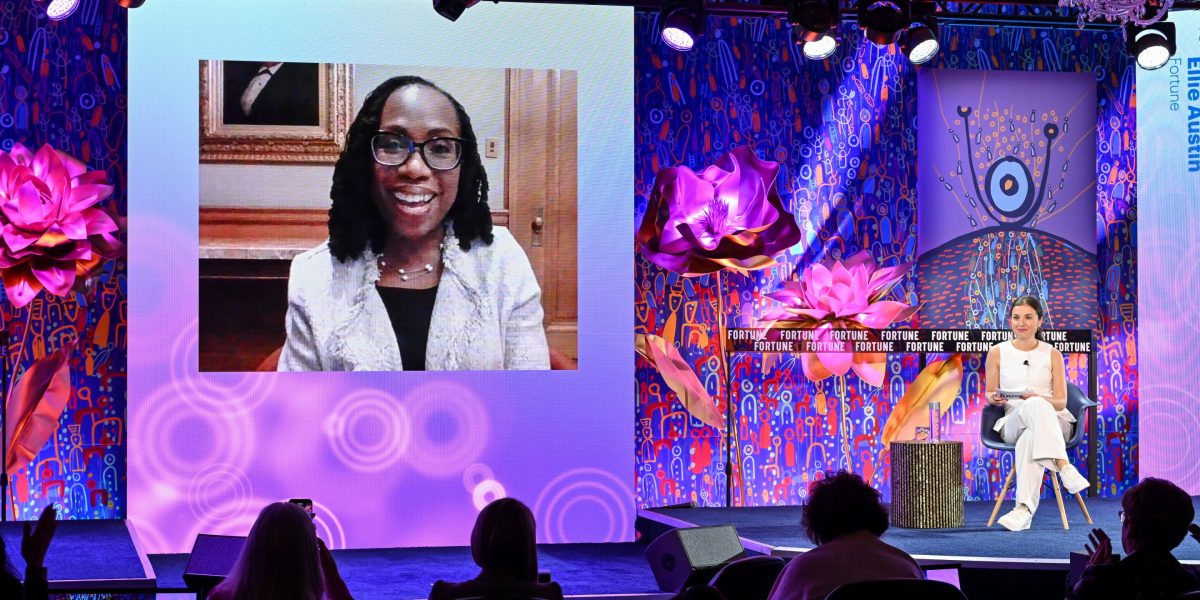Ketanji Brown Jackson, associate justice of the Supreme Court, was welcomed with a standing ovation as she appeared virtually at Fortune’s Most Powerful Women summit in Laguna Niguel, Calif. On Tuesday. After all, she’s the first Black woman to sit on the country’s highest court. Jackson gave us details on everything from her recently released memoir, Lovely One, (and whether she’s in for a film adaptation: the answer is she’s open to it, but she won’t say who she wants to play her) to her historical appointment to memories of her father.
When she was about three years old, her father decided he wanted to be a lawyer, not a high school history teacher, as he had been. They moved to Miami, where he attended law school, and Jackson recalls him sitting across from her at the kitchen table in their campus apartment. “He had all of his law books on the table, and I had my coloring book on the table,” she said. Jackson thought maybe that was something she could do. And it helped that she was being raised in a different era.
“I think that it really was the timing of my birth that had a lot to do with my ability to get to where I am today,” Jackson said. Born in 1970, not long after the passing of the Civil Rights Act, the Voting Rights Act, and the end of segregation, she experienced more opportunities than her parents. “My parents,” she said, “had actually been subjected to that state of affairs.” Jackson continued: “They were not allowed by law to participate fully in society, and so when I was born, they were like, this is our shot. Our daughter is going to do all the things that we were not able to do.”
And that’s exactly what happened, but of course, it isn’t without its challenges. For one, Jackson’s in the public eye, and so is her family. In her book, she mentions the time she weighed whether to accept President Joe Biden’s nomination. It was something she discussed with her family and wanted to know if her daughters would be comfortable with the decision. Both were very supportive, Jackson said. But now she’s a justice and trust in the court is close to historic lows. Jackson stressed how important it is that the court maintains trust, and said writing opinions gives an opportunity for transparency.
“We only have the public’s belief in the rule of law and willingness to follow what it is that we decide,” Jackson explained. “And so it’s really quite important for the court to do its work in a way that people perceive as having integrity. One of the things we do…is we write our opinions.”
It’s done so the public can understand the decision, which justices were for it or against it, and it can be an important way for the public to build trust moving forward. For Jackson, that’s meant writing dissenting opinions on decisions she disagrees with: namely, the reversals of Roe V. Wade and affirmative action. And yet, like a lot of powerful women who face opposing opinions in the office, she goes to work the next day.
In doing so, she attempts to emulate Justice Stephen Breyer, who she previously clerked for and whose seat she filled. He was optimistic, he brushed himself off, and kept working with his fellow justices, Jackson said. There is a six-three conservative majority though, so it can’t be easy, but it is necessary. People need to say their peace, try to understand others, and find a consensus.
The Broadsheet: Covers the trends and issues impacting women in and out of the workplace and the women transforming the future of business.
Sign up here.
